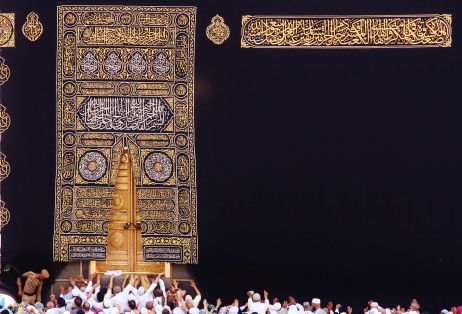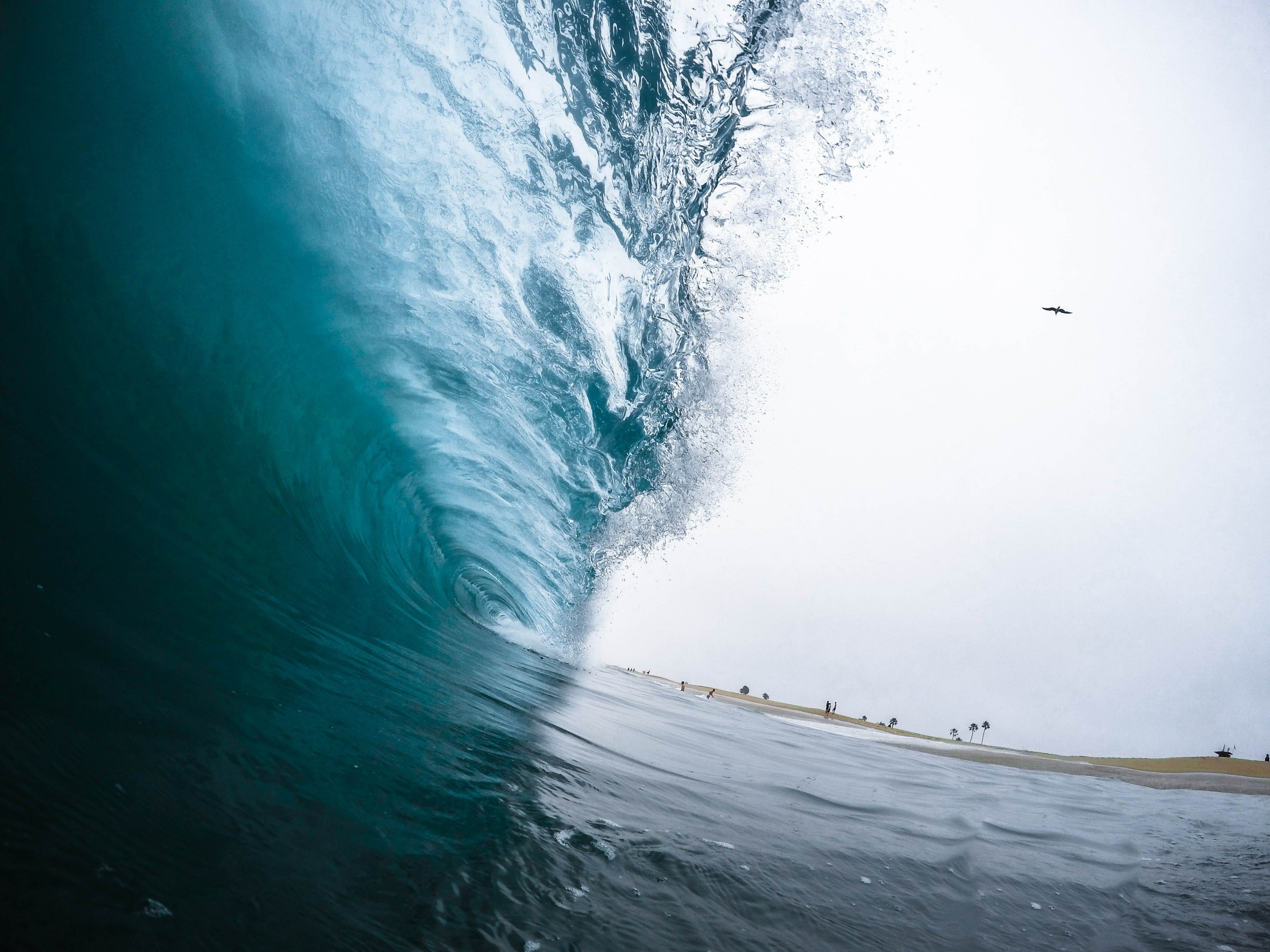بسم الله الرحمن الرحيم
Allah intends for you ease and does not intend for you hardship (2:185)

Alhumdu Lillah, I have just returned from my trip to Umrah for the month of Ramadhan. As always an amazing, joyous, marvellous and memorable experience! I thought I would pen down some of my thoughts and recollect my memories and experiences as guidance and advice for the benefit of the Ummah, in sha Allah. Many of the pieces of advice can be used for Hajj as well, as you will read in sha Allah. A wise man once said, “The best gift you can present to someone is good advice.” Feel free to add comments below and make any corrections, I am no expert of Hajj/Umrah or of the Haramayn. This is not a guide to Hajj/Umrah, it is just advice which I feel will help you and lighten your burden hopefully. And there is some fiqh/masail, because I feel knowledge is extremely important, especially in Hajj and Umrah.
Travelling and Hardship
عَنْ أَبِي هُرَيْرَةَ، أَنَّ رَسُولَ اللَّهِ صلى الله عليه وسلم قَالَ “ السَّفَرُ قِطْعَةٌ مِنَ الْعَذَابِ يَمْنَعُ أَحَدَكُمْ نَوْمَهُ وَطَعَامَهُ وَشَرَابَهُ فَإِذَا قَضَى أَحَدُكُمْ نَهْمَتَهُ مِنْ
وَجْهِهِ فَلْيُعَجِّلْ إِلَى أَهْلِهِ
From Abu Hurayrah (Allah be pleased with him) that the Messenger of Allah ﷺ said, “Travelling is a portion of the torment. It denies you your sleep, food, and drink. When you have accomplished your purpose, you should hurry back to your family.” (Muwatta Malik).
Normally, we are in our daily routine, we do the same thing every day. We do not realise things about ourselves, our habits and temperaments etc. When we travel on a journey, especially with others these habits come out. As we can see from the above Hadith, travelling deprives us of our food, sleep and drink etc. We all know what happens when we take a man’s sleep or food away. The quote of Umar (Allah be pleased with him) is famous, how you truly know a person once you have travelled with him.
Umar (Allah be pleased with him) asked about a man who had given testimony, wanting to find out whether anyone could vouch for him. A man said to him: “I will vouch for him, O’ Ameer al-Mumineen, ‘Umar asked, “Are you his neighbour?” He said, “No.” He then” asked, “Did you mix with him for a day and come to know his character?” He said, “No.” He asked next: “Did you travel with him, for travelling and being away from home reveal a man’s true essence?” He said, “No.” ‘Umar said, “Perhaps you saw him in the-mosque, standing, sitting and praying?” He said, “Yes.” ‘Umar said, Go away, for you do not know him.”
Source: ‘Umar ibn al-Khattab His life and times (‘Umar ibn al-Khattab shakhsiyatuhu wa ‘asruhu), Volume 1, page 272-273 Written by Dr. ‘Ali Muhammad as-Sallabi, Translated by Nasiruddin al-Khattab
A very profound saying, when travelling with others, especially in a group, our true colours are revealed through our conduct as:
- Much patience is required because people desire & think differently.
- Whilst we should neither keep others waiting nor impose our views on the rest, we should be prepared to be delayed by others as that is part of group travel.
- We should be ready to serve the rest.
- We should abstain from petty complaints.
- We must be considerate of others esp. the weak, the elderly & children.
Pray the Travel/Safar Duas and memorise them for the plane and coaches etc.
 My advice first and foremost is to select your companions carefully and wisely. He/she should be smart, decisive and sharp. The journey is a blessed one but not an easy one, I like to give a true picture and not make it sound like a walk in the park. At times you have to make difficult decisions on the spot, a good companion will help at such times. People reading this blog will be from different spheres of life, some may never have travelled abroad before. Or they have travelled, but not to Haramayn Shareefayn. It is not like a visit to the local mosque, where you have 200-300 people praying. Brace yourself! You can get pushed in Salah, and knocked about in Tawaf, it can be extremely hot, things go missing and your possessions can get stolen, which I will elaborate on later. Going to such a beautiful and holy place with the wrong companions can sometimes make the whole journey a tedious and terrible one. This is why I have inserted the quote of Umar (Allah be pleased with him) above. Even if they are family members or relatives or old friends, travelling brings out a lot of “true” qualities in a person, Hajj and Umrah expose people to another level, be warned!
My advice first and foremost is to select your companions carefully and wisely. He/she should be smart, decisive and sharp. The journey is a blessed one but not an easy one, I like to give a true picture and not make it sound like a walk in the park. At times you have to make difficult decisions on the spot, a good companion will help at such times. People reading this blog will be from different spheres of life, some may never have travelled abroad before. Or they have travelled, but not to Haramayn Shareefayn. It is not like a visit to the local mosque, where you have 200-300 people praying. Brace yourself! You can get pushed in Salah, and knocked about in Tawaf, it can be extremely hot, things go missing and your possessions can get stolen, which I will elaborate on later. Going to such a beautiful and holy place with the wrong companions can sometimes make the whole journey a tedious and terrible one. This is why I have inserted the quote of Umar (Allah be pleased with him) above. Even if they are family members or relatives or old friends, travelling brings out a lot of “true” qualities in a person, Hajj and Umrah expose people to another level, be warned!
Allah tests us in different ways, the greater the trial the greater the reward. It was narrated from Mus’ab bin Sa’d RA that his father, Sa’d bin Abu Waqqas RA, said: “I said: ‘O Messenger of Allah ﷺ, which people are most severely tested?’ He said: ‘The Prophets ﷺ, then the next best and the next best. A person is tested according to his religious commitment. If he is steadfast in his religious commitment, he will be tested more severely, and if he is frail in his religious commitment, his test will be according to his commitment. Trials will continue to afflict a person until they leave him walking on the earth with no sin on him.’” (Ibn Majah)

Hadhrat Sahl Bin Sa’d (Radi Allahu Anhu) narrates that Rasulullah (Sallallahu Alayhi Wa Sallam) said: “Calmness in affairs is from Allah and haste in affairs is from shaytan.” (Tirmidhi)
No matter what happens, do NOT panic. There is always one “panic button” in the group, who makes a mountain of a molehill for every bit of drama. My advice when things go wrong is, “What is the worse that can happen?” Always analyse the situation, and don’t overreact. Remember, you are the guests of Allah, He SWT is the host, and He SWT will not let you down. You are in a different country, there are thousands of people, and the heat can get extreme at times as well. If problems arise or you fall ill, bear in mind your reward is with Allah. The more pain, the more reward.
 Preparations
Preparations
Be ready, mentally, physically, spiritually…
Makkah is the best place on earth and the most beloved to Allah and His Messenger ﷺ. At-Tirmidhi authentically reports in his Sunan (3925) from `Abdullah Ibn `Adiyy (Radi Allahu Anhu) that Allah’s Messenger ﷺ said whilst addressing Makkah: “By Allah! You are the best of the lands of Allah, and the best land of Allah to Allah! And were it not for the fact that I was expelled from you, I would never have left you.”
Rectify your intentions, you are going to Hajj/Umrah to please Allah and fulfil an obligation. Not to show off, therefore try staying off social media and taking pictures at every juncture. This leads to Riyaa (showing off) which is Haraam in Islam and spoils the whole journey. I will talk about photography later on.
The Prophet ﷺ said: “What I fear for you the most is the minor shirk, that is al-Riya (showing off). Allah will say on the Day of Judgement when He is rewarding the people for their actions: Go to those for whom you did Riya for in the world then see if you find the reward with them.” [Related by Ahmad (5/428, 429) and al-Baghawi in Sharh as-Sunnah (4135) from the hadith of Mahmud bin Lubayd, Radi Allahu Anhu, with an authentic chain upon the conditions of Muslim]
Repent from all sins, major and minor. Make a firm intention, when I return I will NEVER sin again. Pray your Qadha Salah or fulfil Qadha fasts beforehand. Remember, Huqooqul Ibaad (rights of servants) and Huqooqullah (rights of Allah). So the rights of servants are fulfilling debts, asking for forgiveness from people who you have hurt and offended etc. Do not merely say sorry, rather make it genuine and have a firm resolution never to hurt anyone again
Look for a reliable tour operator, don’t just ask one or two people. Do thorough research, check online and look at reviews etc. Find out exactly how far the hotels are from the Haram, rather than believe the standard “5 minutes.” See if you can get pictures of inside the hotel online, Mr Google is more useful than some of us can imagine. Ask what sort of food is served. On such a strenuous journey you need to eat well.
As Hajj/Umrah consist of a LOT of walking, whether it is Tawaf or walking to the Haram it is good to be prepared beforehand. Try walking a mile or two daily before you go for Hajj in sha Allah. You will see the benefits, especially for those who don’t exercise regularly.
I was given a list of things to take when I went to Hajj in 2012, Alhumdu Lillah – I have passed the same list to many friends and family over the years who have added and edited the list:

In addition to those above:
Small Qur’an (13 lines are not available in Haram)
Take spare dua books if you can (a few times in tawaf I was asked for books from other Hajis)
Vaccination certificates
Ticket copies
Diarrhoea medication
Painkillers
Paracetamol/Ibuprofen
Tissues/toilet roll
Converted Riyals
Umrah Belt
Locks
Carrier bags for laundry
Energy Tablets
Snacks (crisps, biscuits, etc)
Alarm clock
Radox foot soak
How to play Salah on plane/travelling
https://nawadir.org/2017/05/03/repeating-the-salah-performed-on-the-plane-seat/
https://nawadir.org/2017/07/30/salah-for-a-travelling-female-in-her-menses/
https://nawadir.org/2006/03/16/salah-whilst-travelling/
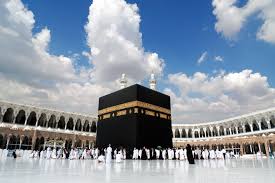
Recite Talbiyah as much as possible in the state of Ihram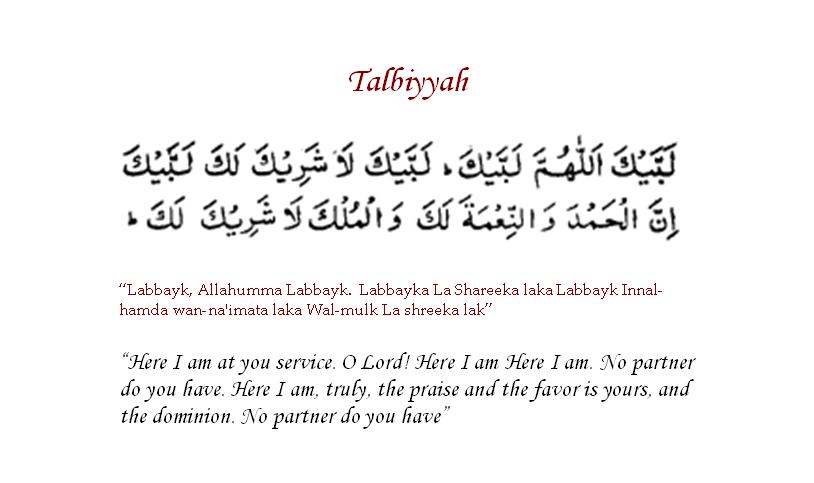
On the way to Makkah keep reciting first kalimah (tayyibah), at least 1,000 times.
Virtues of Makkah
From the places of virtue that Allah has extolled and mentioned their excellence to the exclusion of others is the city of Makkah: the place of safety, and security, the place where revelation to the Prophet Muhammad ﷺ began, and from where he was appointed as the Messenger to mankind. It is the city which Allah swears by in the Qur’an:
لَا أُقْسِمُ بِهَٰذَا الْبَلَدِ “I swear by this city, Makkah”
وَأَنتَ حِلٌّ بِهَٰذَا الْبَلَدِ “And you, [O Muhammad], are free of restriction in this city.” (Al-Balad: 1-2)
Imam Ibn Katheer (rahimahullah) said: This is an oath of Allah (the Most High) by Makkah “Umm al-Quraa” (the mother of all towns), due to the fact that living in it puts one in a state that indicates the greatness of the city itself wherein the people are in a state of Ihraam, living in a sanctity. Allah stated:
وَهَٰذَا الْبَلَدِ الْأَمِين “And by this city of security (Makkah).” (At-Teen: 3)
Within Makkah is the Ancient House (Al-Bayt Al-`Ateeq) for the worship of Allah alone. It was the first place of monotheistic worship built for mankind. Allah stated:
إِنَّ أَوَّلَ بَيْتٍ وُضِعَ لِلنَّاسِ لَلَّذِي بِبَكَّةَ مُبَارَكًا وَهُدًى لِّلْعَالَمِينَ “Verily, the first House of worship appointed for mankind was that at Bakkah (Makkah), full of blessing, and a guidance for all of creation.” (Aale `Imran: 96)
It the place from where Allah took His Prophet into the Heavens on the night of the Journey. Allah (Most High) said:
سُبْحَانَ الَّذِي أَسْرَىٰ بِعَبْدِهِ لَيْلًا مِّنَ الْمَسْجِدِ الْحَرَامِ إِلَى الْمَسْجِدِ الْأَقْصَى الَّذِي بَارَكْنَا حَوْلَهُ لِنُرِيَهُ مِنْ آيَاتِنَا ۚ إِنَّهُ هُوَ السَّمِيعُ الْبَصِيرُ
“Glorified and Exalted be He above all that they associate with Him who took His slave for a journey by night from Al-Masjid-al-Haraam (at Makkah) to the farthest mosque (in Jerusalem), the neighbourhood whereof We have blessed, in order that We might show him of Our signs. Verily, He is the All-Hearer, the All-Seer.” (Al-Israa: 1)
“There is no city on earth to which all the prophets, the angels, the holy messengers and all the pious servants of Allah, who reside in the heavens and on earth, including the jinn, flocked to, except Makkah.” (Sunan Ibn Majah)
“Around the Ka’bah lies the graves of three hundred prophets.” (Sahih Muslim/Bayhaqi)
“Anyone who falls ill in Makkah for one day, Allah renders his body and his flesh haram (forbidden) from the fire of Jahannam.” (Sahih Bukhari)
Tawaf/Ka’bah
Sayyiduna Abu Umamah (Radiyallahu’anhu) reports that Rasulullah ﷺ said: ‘The doors of the sky open and du’as are accepted on four occasions;
- a) When the armies clash in war
- b) When rain falls
- c) At the time of iqamah [for salah]
- d) When looking at the Ka’bah.’
(Al-Mu’jamul Kabir, Hadith: 7713 & 7719 & Sunanul Kubra of Bayhaqi, vol.3 pg.360 with a weak chain. Also see Majma’uz Zawaid, vol.10 pg.155, Nataijul Afkar, vol.1 pg.383-384, Al-Futuhatur Rabbaniyyah, vol.4 pg.369 & footnotes on Musannaf Ibn Abi Shaybah, Hadith: 19861) https://hadithanswers.com/duas-accepted-upon-seeng-the-kabah/
From this Hadith, Ulama deduce when your first sight falls on the Ka’bah your Duas are accepted. Try and find a good spot to sit/stand for a long time so you can make a lengthy Dua (please pray for me too). When walking in Masjid Haram for the first time keep your gaze low so it doesn’t fall on the Ka’bah, once you find a spot sit and make Dua.
Make dua seriously, not half-heartedly. There is a story of Hajjaj ibn Yusuf RH who saw a blind man making Dua in front of the Ka’bah, but he wasn’t paying attention in dua. Hajjaj said to him, “I am going for Tawaf, after seven rounds if your eye sight is not returned I will kill you!” The man panicked and started making Dua passionately and fervently like a man who is drowning! Before Hajjaj finished, the man’s eyesight was returned. Subhan’Allah!
Try to make sure your Ihram is tightly fastened, and use safety pins if necessary. Try not to let the bottom piece drag too low as people tend to step on it (which may lead to embarrassment!). Same for sisters, which is a bit more difficult as women tend to wear more loose clothing and it drags along the floor. But if someone steps on your abayah it can cause a lot of inconvenience especially if you wear the long abayahs from head to toe! All I can say is be careful because in Tawaf you are very close together especially in the Mataf (the area around the Ka’bah). Men should also, use a belt if necessary. Very handy to keep your money in as well.
I love a man with Gheerah/Ghayrat! But we also need common sense with Gheerah (protective jealousy), many men do Tawaf with their wife (ves)! And they form a ring around their womenfolk, which is all good and well, but you can’t do Tawaf right next to the Ka’bah and not expect anybody to push or touch your womenfolk (accidentally), it is sure to happen in those areas. Then some men go one step ahead and push and shove anyone who comes close to their wife/daughter. It is ridiculous! As I said, I admire their Ghayrat, but these couples need to do Tawaf on the outskirts of mataf or on the upper floors, where it is less busy! The Mother of Believers, ‘Ā’ishah (Allah be pleased with her) used to do ṭawāf in an area away from the men, and she did not touch the Black Stone or the Yemeni Corner if there was crowding. It was narrated that ‘Ata’ said:
‘Ā’ishah used to do ṭawāf far away from the men, not mixing with them.” A woman said: “O Mother of the Believers, let us go and touch the Black Stone!” She said: “Go yourself,” and she refused to go.
In my opinion, the best place for women to do ṭawāf is on the roof of the Masjid. Now it may seem like a big distance from far, but I promise you, all it takes is an hour and 10 minutes, to be precise, to complete a ṭawāf, walking at an average pace. Now the Shayṭān may play with your mind and make it seem like a lot. But then ask yourself this…don’t you easily, easily, walk an hour ten minutes in the shopping mall?
Tawaf starts from the area in line with Hajr Aswad (black stone), opposite the black stone there is a green light which can also be used to indicate where the Tawaf starts. In previous times there was a thin piece of marble which went all the way down the Mataf, this also indicated the start of Tawaf as it is good to be precise.
As far as I know, wheelchairs are not allowed in the Mataf for Tawaf. Apparently, now there are scooters available for Tawaf on certain floors.
You can read any form of Dhikr/Dua looking in a book or off by heart in Tawaf or even Qur’an and Surahs you know by heart. If you are reading from a book, it is safer to do Tawaf on the outside, as reading books slow people down. Which doesn’t help people behind you.
When people are on the last Tawaf (seventh one) they struggle to get out of the Tawaf congregation because it is choc a block, especially if you like to do Tawaf close to the Ka’bah. A good tip for you is, as you do the seventh Tawaf start walking out slowly i.e. do the seventh Tawaf on the outskirts of the Mataf. So as soon as you finish, kiss the Hajre Aswad then you can leave the Mataf and pray your two Rak’ahs for Tawaf. Also, stick out your hand as a gesture that you are leaving, not barge your way through as some people do.
Also, the correct method of kissing the Hajre Aswad is to kiss your palms not your fingers as people tend to do. (Women’s guide to Hajj and Umrah – Mufti Faruq Saheb)
The multazam (place of clinging) is the part of the Ka’bah that is between the Black Stone and the door of the Ka’bah. What is meant by iltizam (clinging) is when the supplicant (person making du’aa’) places his chest, face, forearms and palms against it and calls upon Allah saying whatever du’aa’ he wishes. Try not to push and hurt others, and leave room for women too at the Multazam.
There is no specific du’aa’ that the Muslim should say in that place. He can cling to the Multazam when he enters the Ka’bah (if it is easy for him to enter) or he may do that before performing the Farewell tawaaf (tawaaf al-wadaa’), or he may do it at any time he wants. He should not cause difficulty for other people by offering a lengthy du’aa’. Similarly, it is not permissible to crowd other people or annoy them in order to cling there. If he sees a space then he should say du’aa’. Otherwise, it is sufficient for him to say du’aa’ whilst circumambulating and when prostrating in prayer.
It was narrated that ‘Abd al-Rahman ibn Safwaan (Allah be pleased with him) said: “When the Messenger of Allah ﷺ conquered Makkah, I said: I will put on my garments, as my house was on the road, and I will wait and see what the Messenger of Allah (peace and blessings of Allah be upon him) does. So I went and I saw that the Prophet (peace and blessings of Allah be upon him) had come out of the Ka’bah, he and his companions, and they were touching the House from the Door to the Black Stone. They had placed their cheeks against the House and the Messenger of Allah (peace and blessings of Allah be upon him) was in the midst of them.” Narrated by Abu Dawood, 1898; Ahmad, 15124.
Ibn Abbas (Radiyallahu Anhu) narrates that he heard Rasulullah ﷺ say: “The Multazam is a place where duas are accepted. Whenever a person prays to Allah, at this spot, Allah grants his prayer”.[Al-Hisnul-Haseen, Musalsalaat, Virtues of Haj – page 111]
Multazam is that part which is situated between the black stone and the door of Ka’bah. Multazam comes from the Arabic word ‘Iltizaam’ which means ‘to cling on to something’ or ‘to be attached to something’. It is so called because a person should touch his body to this section and make dua.
Imam Abu Dawood reports that Ibn Abbas (Radiyallahu Anhu) would stand up straight here with chest and face against the Ka’bah, arms stretched out above the head, leaning against the Ka’bah. He then said: “I saw Rasulullah ﷺ doing this”.
Shaykh Zakariyya (Rahmatullahi Alayhi) writes: “It was a common experience of every Ustadh of the above Hadith, from my teacher (Hadhrat Maulana Khalil Ahmed Saharanpuri Rahmatullahi Alayhi) to Rasulullah Sallallahu Alayhi Wasallam that they said: “I prayed at the Multazam in the above manner and my prayer was granted”. Shaykh RH writes: “This has also been my personal experience”.
Note: This dua at Multazam should not be made during the Tawaf, otherwise Tawaf will be affected. It is to be made after completion of Tawaf and preferably after praying two rakats Tahiyyatut-Tawaf.
Hasan Basri (Rahmatullahi Alayhi) wrote a letter to the people of Makkah Mukarramah informing them that there are fifteen places in the vicinity of Haram Shareef where duas are accepted (Mustajaab Places)
- During Tawaf
2. At the Multazam
3. Under the Meezabur-Rahmah (the water sprout in Hateem, from where the rain water drops off from the roof of Ka’bah).
4. Inside Ka’bah Shareef
5. At the well of ZamZam (after drinking ZamZam)
6. On Safa
7. On Marwa
8. While walking between Safa & Marwa
9. At Maqaame Ibraheem
10. On the plain of Arafaat
11. At Muzdalifa
12. At Mina
13. 14. 15. At the time of pelting the three Shayaateens in Mina.
[Narrated in Al-Hisnul-Haseen]
Shaykh Zakariyya (Rahmatullahi Alayhi) writes: “Some Ulama have added a few more e.g.”
– Inside the Mataaf (where Tawaf is made)
– When one’s sight falls on the Ka’bah (especially the first time)
– Inside the Hateem (the semi-circle around Ka’bah)
– Between Rukne Yamami & Hujare Aswad
[Virtues of Hajj – Page 112]
Great precaution needs to be taken when going to kiss the Hajre Aswad, it is a great Sunnah but saving yourself from harming others is Fardh. The same applies to making Dua at the Multazam and going into the Hateeem. Brothers need to be fair to the women in these areas. We can’t just block them out. I wouldn’t advise women to try and kiss the Hajre Aswad during busy periods I saw one woman trying to kiss it in Ramadhan and her Hijab came off or got pulled off… Astaghfirullah! “Prevention is better than cure.” The Multazam area is between the door of the Ka’bah and Hajre Aswad. There is enough room for men AND women if we can be considerate, the same applies in the Hateem to pray Salah and make dua.
“For verily, anyone who touches the Hajre Aswad is cleansed of his sins just as he was on the day his mother gave birth to him.” (Musnad lmam Ahmad)
It helps to wear thin socks when doing Nafl Tawaf (not in Umrah) as it can help your heels, or the leather ankle ones available to buy in Makkah.
Thursday night, the Tawaf usually gets busier than normal. As local people come for Tawaf because of Jumuah
Women should not be praying loud in Tawaf. This year I saw a lady lead her group praying loud, whilst her group repeats after her. Women cannot be Imams! “Be not soft in speech, lest he in whose heart is a disease (of hypocrisy, or evil desire for adultery, etc.) should be moved with desire.” (Surah Al-Ahzab Ayah 32) Second is the Hadith found in “Sahih Bukhari” Narrated Abu Hurayrah (Allah be pleased with him)
‘The Prophet ﷺ said, “The saying ‘Subhan Allah’ is for men and clapping is for women.” (If something happens in the prayer, the men can invite the attention of the Imam by saying “Subhan Allah”. And women, by clapping their hands). Sahih Al-Bukhari Vol #2, Book #22, Hadith #295.
Support for this can be found in the book of Al-Hafidh Ibn Hajar Al-Asqalani “Bulugh Al-Maram” in the tafseer of this Hadith it mentions the clapping is for women because the men should not hear the woman’s voice. (Bulugh Al-Maram: Arabic/English Page # 81 Hadith # 174)
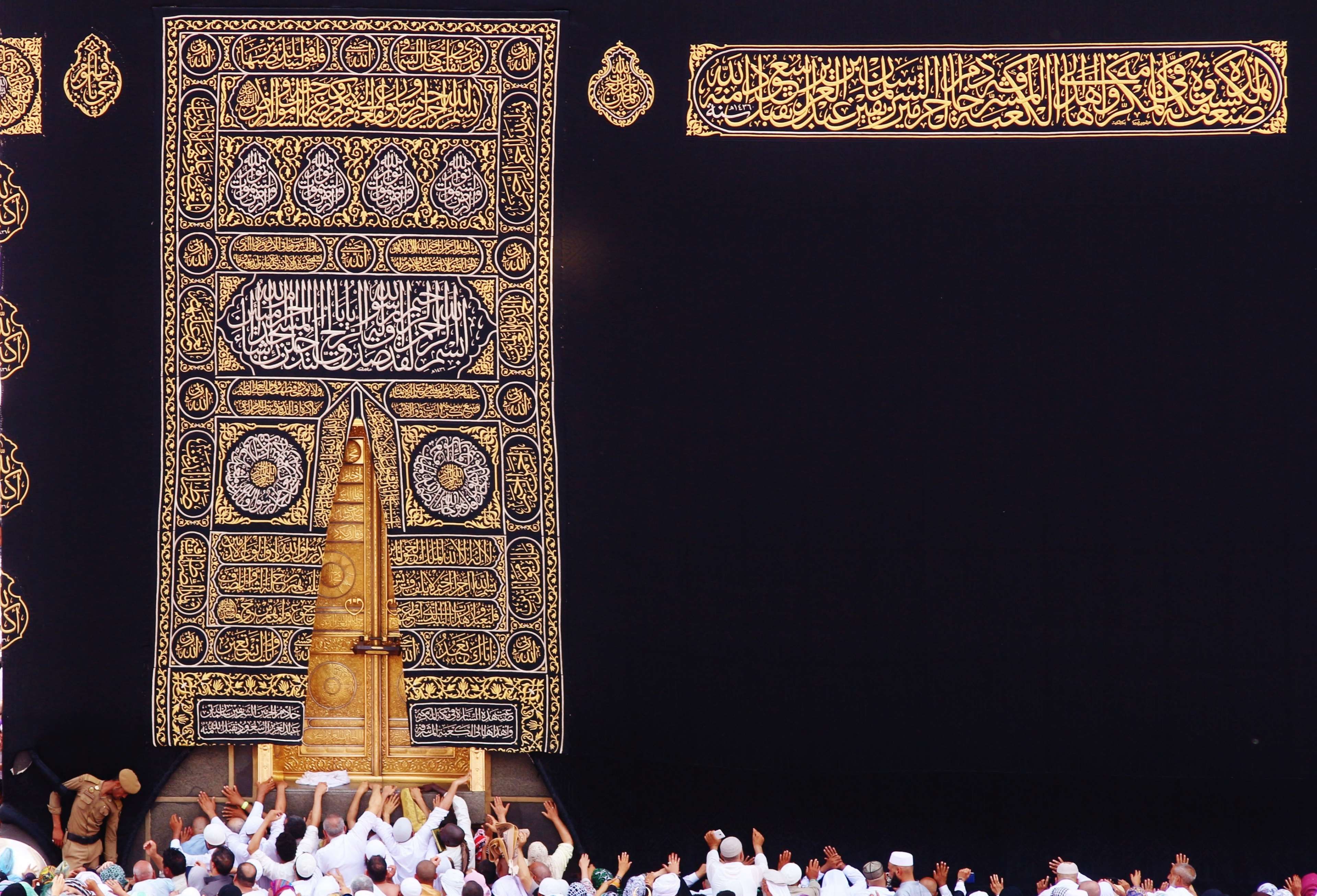 Etiquette of the Masjid/Haram
Etiquette of the Masjid/Haram
Avoid sin
The companions Umar (Allah be pleased with him) and Abdullah Ibn Abbas (Allah be pleased with him) would say, “I would prefer to commit seventy sins in Rukyah (a place outside Makkah) than commit a single sin in Makkah.” (Kanzul Ummal)
The evidence of Shari`ah (Islamic Law) indicates that good deeds are multiplied in honourable times, such as Ramadhan, and the first ten days of Dhul-Hijjah, and places like the Two Sacred Masjids (Mosques). They are highly rewarded in Makkah and Al-Madinah, as it is reported in the authentic Hadith that the Prophet ﷺ said: “One Salah (Prayer) in my Masjid (mosque) [i.e. Al-Masjid Al-Nabawy (the Prophet’s Mosque in Madinah)] is better than thousand Salahs in any other Masjid, except Al-Masjid Al-Haram (the Sacred Mosque in Makkah). And one Salah in Al-Masjid Al-Haram is better than hundred thousand Salahs in my Masjid.” (Related by Ahmad and Ibn Hibban through an authentic Isnad [chain of transmission])
Many people tend to leave things in the saff/rows for Salah to reserve their place. This is incorrect. Please see the fatwa below:
Question: What is the ruling regarding reserving one’s position in the front saff between 2 Salahs with one’s scarf, hat or any other item?
Answer:
Assalamu Alaikum,
The Masjid is the house of Allah and is open to all Muslims who come for Salaah. Whoever comes first and sits in a certain place, then he is deserving of that spot. The Fuqaha (jurist) have written that is Makrooh (reprehensible) for one to reserve a place for himself in the Masjid to perform Salaah on that spot. (Kitabul Fatawa vol. 3 pg. 115 – Al Fatawa Al Hindiya vol. 1 pg. 108).
Based on these explanations, it will not be proper (in fact, it will be reprehensible) for one to fix a spot in the first Saff by putting a scarf, hat etc. to reserve it for his own self. It should also be noted that it is Makrooh (reprehensible) for a person to ask another one to get up from his place (in the Masjid) and sit in that place. Abdullah Bin Umar (R.A) narrated that the Prophet (blessings and peace of Allah be upon him) prohibited that one should make another get up from his place and then sit on it.
With respect to if a person was sitting on a spot and then left to attend to a need (to return) when he returns he will be more deserving of that spot. In this regard, Abu Hurairah (R.A) narrated that the Prophet (s.a.w) said, ‘If anyone gets up from his place of sitting and then returns to that spot, then he is more deserving of that spot.” (Abu Dawood – Kitabul Fatawa vol. 3 pg. 113)
And Allah Knows best.
Mufti Waseem Khan https://darululoomtt.net/reserving-seat-masjid/
 Many women like to pray Salah next to men or directly behind them:
Many women like to pray Salah next to men or directly behind them:
The Messenger ﷺ in which he said: “The best rows for men are the front ones and the worst are the back ones, and the best rows for women are the back ones and the worst are the front ones.”
The hadeeth quoted is saheeh, but according to the scholars it is to be interpreted in this manner, which is when there is no barrier between the men and women. But if they are screened from the men, then the best rows are the front ones and the worst ones are the back ones, just as is the case with men, and they have to complete the front rows first, then the next and so on, and close the gaps, just like men, because of the general meaning of the proven hadeeth from the Messenger of Allah (blessings and peace of Allah be upon him) concerning that. May Allah help us all to do that which He loves and which pleases Him.
Walking in front of someone praying Salah
If you are in Tawaf it is okay to walk in front of someone praying Salah, other than that the ruling is the same i.e. you are not allowed to walk in front of someone praying Salah. I understand at time it can be difficult to get out, but we must still walk with precaution. As both the Masjids in the Haram are large Masjids, you can leave two rows in front of the one praying and cross over. But never walk directly in front of someone praying Salah if they are praying alone; Sunnah/Nafl.
This hadeeth – i.e., the hadeeth narrated by al-Bukhari (487) and Muslim (505) from Abu Sa’eed al-Khudri (Radiyallahu Anhu) says “If any one of you is praying, he should not let anyone pass in front of him. Let him push him away as much as he can, and if he insists then let him fight him, for he is nothing but a shaytan (devil)” – indicates that it is makrooh to pass in front of a person who is praying if he is praying on his own and without a sutrah. The same ruling applies to the imam if he is praying without a sutrah. But with regard to the person who is praying behind the imam, it does not matter what passes in front of him, just as it does not matter what passes in front of the imam or person praying alone if it passes behind the sutrah. The sutrah of the imam is also the sutrah of those who are praying behind him.
We say this concerning the imam and the person who prays alone, because the Prophet ﷺ said, “If any one of you is praying…” According to the scholars, this means praying on his own, because of the hadeeth of Ibn ‘Abbas (Radiyallahu Anhu). Hence we say that the person who is praying behind the imaam does not have to push away the person who passes in front of him, because Ibn ‘Abbas (Radiyallahu Anhu) said: “I came along riding on a female donkey one day when I had just reached the age of puberty. The Messenger of Allah (peace and blessings of Allah be upon him) was leading the people in prayer in Mina, without any kind of wall in front of him. I passed in front of part of the row, then I got down and sent the donkey to graze, and joined the row, and no one rebuked me for that.” (al-Tamheed, 4/187)
Drink Zamzam and drink to your full, remember duas are accepted when drinking Zamzam so make dua EVERY time for yourself and for others (and please remember me). For further info on Zamzam click this.
Prophet ﷺ said: “The water of Zamzam is for whatever purpose it is drunk for.” (Reported by Ibn Maajah, 2/1018; see Al-Maqasid al-Hasanah by al-Sakhaawi, p. 359).

Photography is totally forbidden in the Masjid. Scholars have given a fatwa permitting video and photography for da’wah purposes and others have said digital images are okay. But the stronger and preferable view will always be to abstain from such things, as it can be a reason for a lack of sincerity and showing off on social media. Most of these actions lead to showing off, the Prophet warned us about this:
The Prophet ﷺ said: “Shall I not inform you of what I fear for you more than the Masih ad-Dajjal? It is the hidden shirk. It is when a man stands up for prayer, then beautifies his prayer for another to look at.” [Related by Ibn Majah (2604) from the hadith of Abu Sa’id al-Khudri, radiallahu ‘anhu. The hadith is hasan]
Are you going to Hajj for Allah or for Facebook friends?!
I was really strict this Ramadhan and I actually stood in the way of people taking photos (my Jihad against selfies!) because I received a talk from a scholar of Pakistan, Mufti MahmoodulHassan Shah Mas’oodi Saheb who said:
“Shaykh Abdul Rehman al-Huzayfi (hafdihahullah) – Imam of Masjid Nabwi SAW- gave a Khutbah after Dhuhr Salah (normally there are no Khutbahs after Salah, apart from Jumuah), he told the people to stop taking photographs in the Haram as this causes takleef/inconvenience to Allah SWT and his Prophet (peace and blessings of Allah be upon him), you hurt the angels! Do you want to be cursed? I stand for Salah as the imam, you take your mobile phones out! The muaddhin gives adhan, you take your phone out! People were crying, it was a long Khutbah. After Asr Salah someone explained to us the reason for the Khutbah. He had a dream of the Imam of the Prophets, The beloved of Allah, The leader of creation ﷺ blessed me with his presence in a dream and informed me, “Tell people to stop taking photographs as it hurts me, it breaks my heart.”
Mufti Mahmood saheb explains the enemies of Islam hurt the Prophet (blessings and peace of Allah be upon him), but how can we as the Ummah of the Prophet ﷺ hurt him or cause him pain?
I was once with Dr Abdul Salam Saheb, who is my Shaykh from Pakistan. We were together in Madinah, we came out of the Masjid. Once we had walked a fair distance, an alim who was residing in Madinah said to my beloved Shaykh, “This place is blessed, beloved, very virtuous and lofty in status. But, many people come here then leave and their Iman leaves with them. Because of the sins they do and takleef they cause people.” Allah shows his pious servants and His friends such things through the eyes of the heart!
Now, ask yourself is social media and photography that important? It is like the iPhone is the new Qibla and Snapchat is the new Qur’an. People tend to look at them more, sadly. Please avoid taking a smartphone if there is no need.

Ismail ibn Nazir Satia (One who is in dire need of Allah’s forgiveness, mercy and pleasure)
15 Shawwal 1439
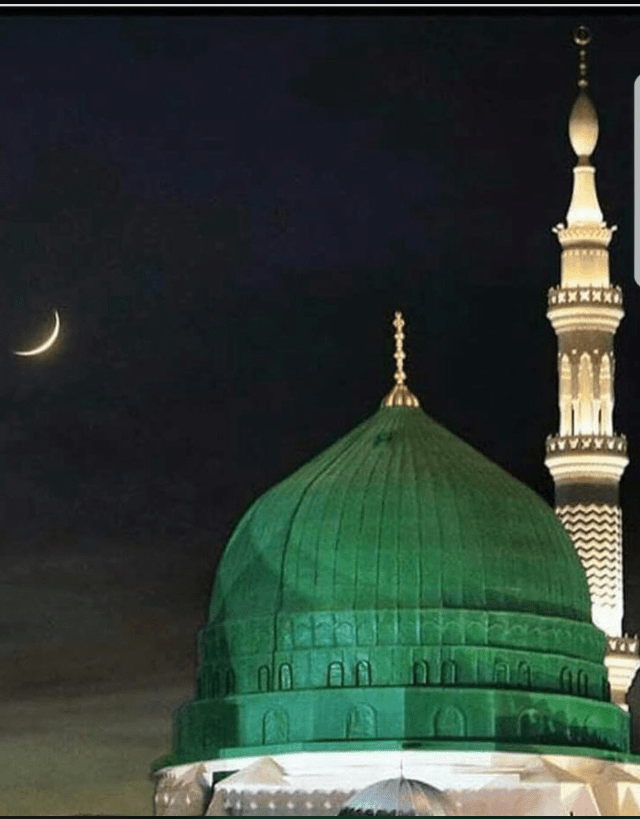 The city of Hijrah, a city once called Yathrib,
The city of Hijrah, a city once called Yathrib,
